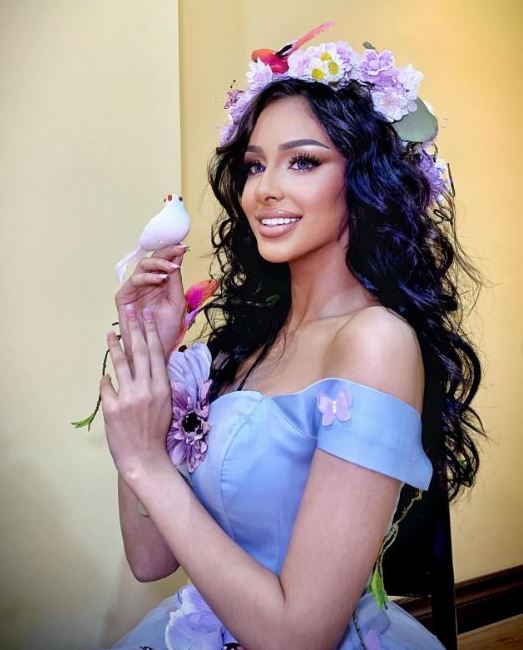(December 22, 2023) Indian-origin Malaysian model Manvin Khera made Malaysia proud by winning the Miss Globe 2023 title. With its inception in 1925, the contest holds the distinction of being one of the world’s longest-running major international beauty pageants. The annual event, with headquarters in Albania, is ranked seventh in prominence in the international beauty contest for women.
Manvin’s win marks a historic first for Malaysia, as she brought home the first ever Miss Globe crown, leaving behind 49 contestants from across the world. “It’s truly an honour to represent my country on the international stage and I am really happy to be the first ever Malaysian to bring home the Miss Globe crown. I am happy to have raised the bar high for my country,” the 22-year-old said in an interview with after the historic win.

Manvin Khera
Beyond the glitz and glamour of the ramp, Manvin is a dedicated law student pursuing her education at the University of Malaya. She is a passionate advocate for animal rights and veganism, and aspires to become a human rights lawyer while continuing her modelling career.
A pageant pro
Before her participation in the Miss Globe competition, Manvin has competed in multiple pageants, gaining recognition and winning titles.
Her journey in the world of modelling began in 2017 when she earned the Miss Teen Malaysia title at the age of 16. This win led her to participate in the Miss Teen International competition held in her country of origin, India that same year. She was one of the top 10 contestants in the competition and earned recognition for the best national costume.


Manvin Khera
Continuing to pursue her modelling career alongside her academic endeavours, Manvin kept on working for modelling assignments and subsequently participated in the inaugural Ratu Wanita Malaya pageant, the Malaysian franchise of the Miss Globe competition. Apart from clinching the main title in the international pageant, Manvin also won the titles of ‘Best in Evening Gown’ and ‘Best in Talent’.
Her advice to people chasing their dreams is, “stop doubting yourself. Whatever aspirations that you have, just go for it.”
The multifaceted youngster
Born in 2001 in Kuala Lumpur, Manvin hails from a family where both her parents are business owners. “Initially they were apprehensive of me entering the field of modelling but as I won the pageants, they said, ‘we believe in you’,” Manvin revealed.
Despite her Malaysian upbringing, the Indian-origin youngster boasts of fluency in Punjabi (her mother tongue), Hindi, English, and Malay.
The Malaysia-born Indian has passion for diverse cultures and has travelled to countries like India, Thailand, Singapore, Australia, Indonesia, and the United States learning about their cuisines and exploring the cultural diversity in the process.


Manvin Khera
Before appearing in the Miss Globe nationals, she suffered from acne for a year and felt quite insecure about the situation. “It was a challenging phase for me and I was constantly worried about it and of facing the camera but I worked towards improving the condition and was finally able to come out of it,” she shared highlighting. “Health problems can be reversed with corrective measures and you should not let them come in between you and your goals.”
When it comes to the inspiration of life, Manvin finds a role model in Priyanka Chopra, and respects her achievements, confidence, and humanitarian endeavours.
Not merely limited to pageants, Manvin’s talents extends to classical dance forms like Bharatanatyam, Kathak, and Odissi. She also finds joy in, archery, hiking, and reading.
- Follow Manvin on Instagram



